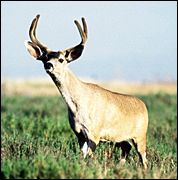Whether you accept it, avoid it or live somewhere in between, insurance coverage has become a defining issue for our profession. Patients increasingly expect to use their benefits, practitioners want to be compensated fairly for their time and expertise, and the system itself remains – at best – fragmented. The encouraging news is that coverage has expanded in meaningful ways. The challenging news is that reimbursement, across the board, remains inadequate.
Herbs & Botanicals
Deer antler (lu rong)
What is deer antler? What is it used for?
Although deer antler is considered an important component of herbal medicine, it is not an herb per se; rather, it comes from an animal. High-quality deer is usually imported from China, Russia or New Zealand. The deer are not killed in the process of harvesting deer antler; the antlers are simply cut during the summer, and regenerate over the next few months.
Deer antler can regenerate because it contains a group of substances known as ectosaponins. Studies have shown that the ectosaponins extracted from deer antler can help regenerate all types of tissue, including nerve tissue. Deer antler has also been shown to decrease fatigue and improve sleep and appetite. In animal tests, deer antler has been shown to increase oxygen uptake in the brain, liver and kidneys, and increase red and white blood cell production.
 Because deer antler is one of the few organ structures that regenerates each year, it is believed to build strength and power and rejuvenate the body. Long-term use is believed to rebuild energy, increase longevity, and even reverse the aging process.
Because deer antler is one of the few organ structures that regenerates each year, it is believed to build strength and power and rejuvenate the body. Long-term use is believed to rebuild energy, increase longevity, and even reverse the aging process.
How much deer antler should I take?
The recommended dose of deer antler is 0.25-0.5 grams taken two or three times daily. Deer antler can be boiled and eaten, or consumed as a raw, ground powder.
What forms of deer antler are available?
Sliced deer antler is available at some Chinese herb shops for easy cooking or grinding. Powders and extracts are also available.
What can happen if I take too much deer antler? Are there any interactions I should be aware of? What precautions should I take?
Deer antler should not be taken during the acute stage of a cold or flu, or when experiencing acute fever. As of this writing, there are no known drug interactions with deer antler. As always, make sure to consult with a qualified, licensed health care provider before taking deer antler or any other herbal remedy or dietary supplement.
References
- A 2000-year old medicine from deer antlers. New health and medical findings from around the world. Life Extension Magazine December 1994;14(12):99-103.
- Fulder S. The Book of Ginseng and Other Chinese Herbs for Vitality. Rochester, VT: Healing Arts Press, 1980.
- Ghosh P, Smith M, Wells C. Second-line agenda osteoarthritis. In: Dixon JS, Furst DE. EDA Second Line Agents in the Treatment of Rheumatic Disease. New York: Marcel Decker, 1992, p. 383.
- Teeguarden R. Radiant Health: The Ancient Wisdom of the Chinese Tonic Herbs. New York: Warner Books, 1998, pp. 125-128.
- Worsley JR. Acupuncture. Is it for You? Dorset, England: Element Books Limited, 1988.


